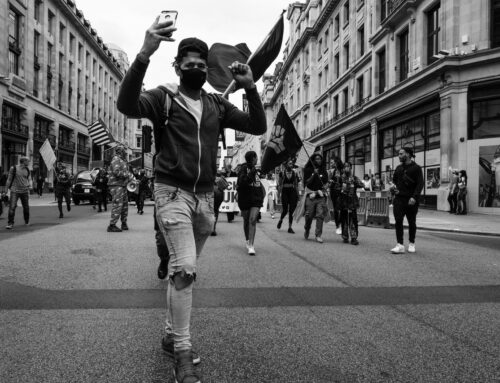The High Court Judgement in Miller v College of Policing & Ch Constable of Humberside (handed down yesterday) commences with a quote from George Orwell:
“If liberty means anything at all, it means the right to tell people what they do not want to hear.” ”
And when a Judgement starts with a quote from Orwell. It is an indication that it is going to be a very important ruling on free speech.
Justice Knowles went on to quote another famous ruling (in the case of Redmond Bate) “Free speech includes not only the inoffensive but the irritating, the contentious, the eccentric, the heretical, the unwelcome and the provocative … Freedom only to speak inoffensively is not worth having …
Yet increasingly we have seen disconcerting attacks on freedom of speech.
From the outset, I want to make clear that we do not have absolute freedom of speech in England and Wales. The Human Rights Act (Article 10), contains limitations which the State can put in place, for example for national security. Other laws contain other restrictions – speech or publications which are likely or intended to stir up racial hatred, is a crime.
It is also important that minorities feel protected and are not subject to attacks based on their characteristics.
Where does free speech cross the line into being a hate crime?
In this case, Mr Miller had committed no crime. The police officer who attended nevertheless referred to the complainant, a transgender person identified by the Court as Mrs B, as the ‘victim’; a pejorative term in the context.
Mr Miller had posted a number of tweets on Twitter about transgender issues. He denied being prejudiced against
transgender people, rather saying he was taking part in the ongoing debate about the reform of gender laws.
The College of Policing requires police forces to record hate incidents whether or not they are criminal. This is for policy and intelligence purposes. The requirements are set out in the Hate Crime Operational Guidance (HCOG).
The non-criminal guidance for hatred directed towards transgender persons is defined as “Any non-crime incident which is perceived, by the victim or any other person, to be motivated by a hostility or Page 2 of 3 prejudice against a person who is transgender or perceived to be transgender.”
Humberside Police were notified of tweets posted by Mr Miller by a transgender woman called Mrs B who had taken offence at the tweets and considered them transphobic. This was recorded as a non-crime hate incident by the Police and a police officer visited Mr Miller at work and spoke to him by phone. Mr Miller was left with the impression that he might be prosecuted if he continued to tweet.
Mr Miller claimed that the HCOG is unlawful as it breaches Article 10 rights of freedom of expression. Even if the Court did not agree, he maintained that its use, in these circumstances was disproportionate and unlawfully interfered with his right to free speech.
The Judge held that HCOG is lawful as a policy both under domestic law and under Article 10 Human Rights Act. He noted that the policy draws upon many years of the experience the police have in tackling hate crime and hate incident and held that HCOG serves legitimate purposes and is not disproportionate.
However the Court did the police’s actions towards Mr Miller did disproportionately interfere with his right of freedom of expression on the particular circumstances of this case and was very critical of the police for turning up at his place of work. Emphasising the importance of free speech in a democracy, Mr Justice Knowles said:
“The effect of the police turning up at [Mr Miller’s] place of work because of his political opinions must not be underestimated. To do so would be to undervalue a cardinal democratic freedom. In this country we have never had a Cheka, a Gestapo or a Stasi. We have never lived in an Orwellian society.”
And I will finish with a quote from a favourite author of mine, and perhaps yours, Ayn Rand, in her early novel Fountainhead, written shortly after her escape from Soviet Russia, where freedom of expression was a crime for which lives were forfeit:
“Since knowledge, thinking, and rational action are properties of the individual, since the choice to exercise his rational faculty or not depends on the individual, man’s survival requires that those who think be free of the interference of those who don’t. Since men are neither omniscient nor infallible, they must be free to agree or disagree, to cooperate or to pursue their own independent course, each according to his own rational judgment. Freedom is the fundamental requirement of man’s mind.”
Contact Us
Related Blogs
Registered Office : Queen’s Chambers, 5 John Dalton St, Manchester M2 6ET | Authorised and Regulated by the Solicitors’ Regulation Authority | 3D Solicitors Ltd : Company Number 10553315 SRA Number 636106

